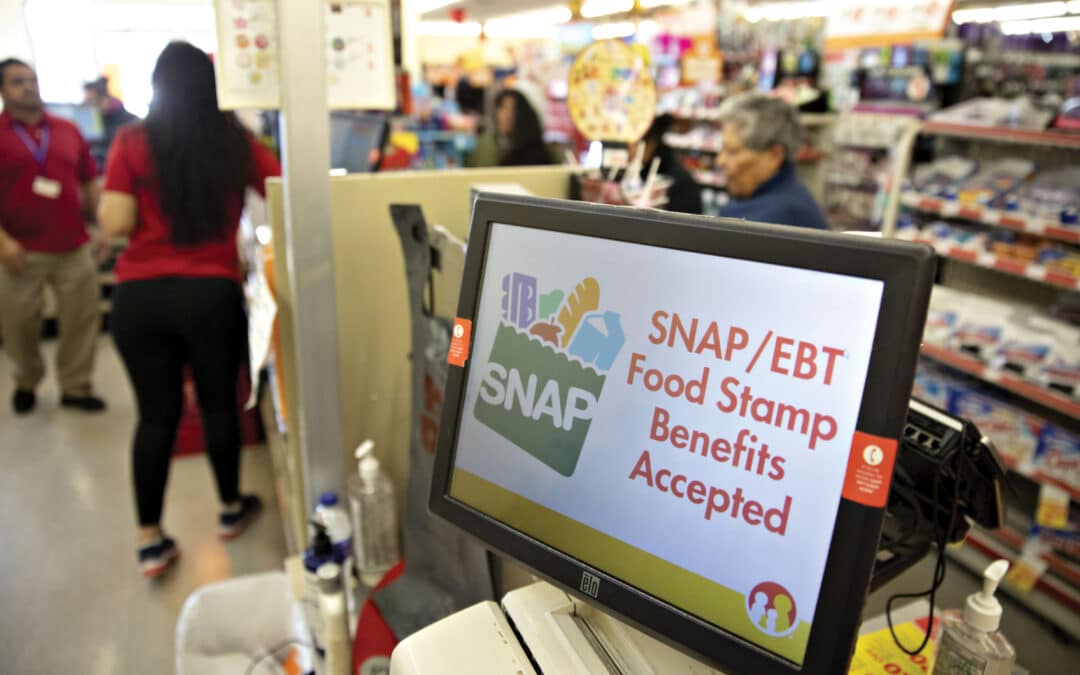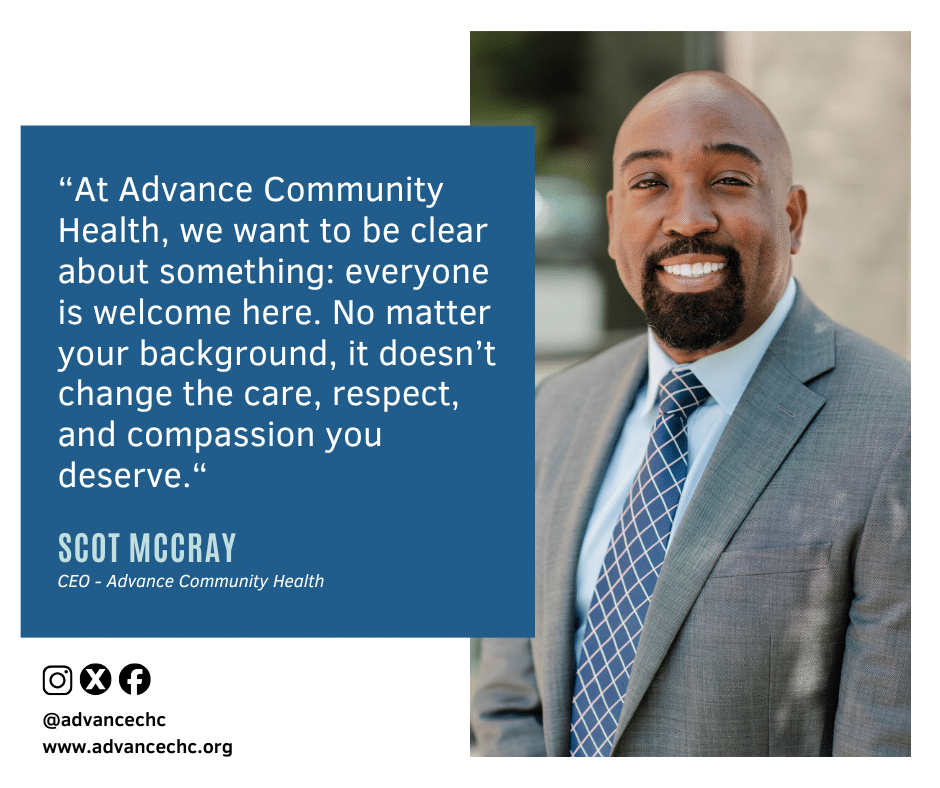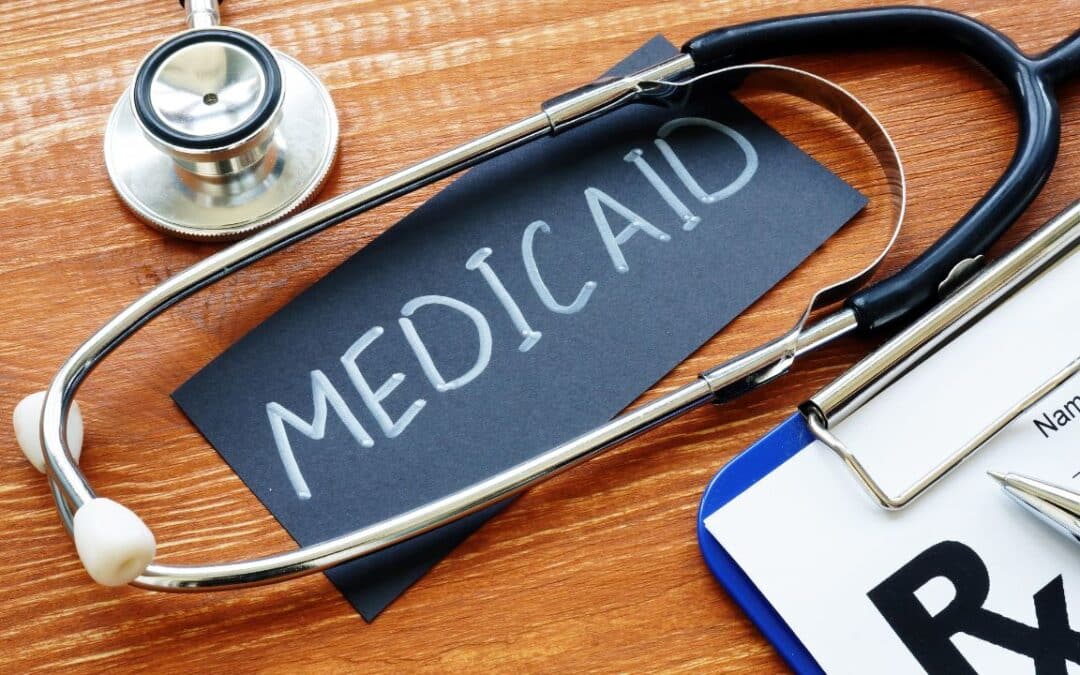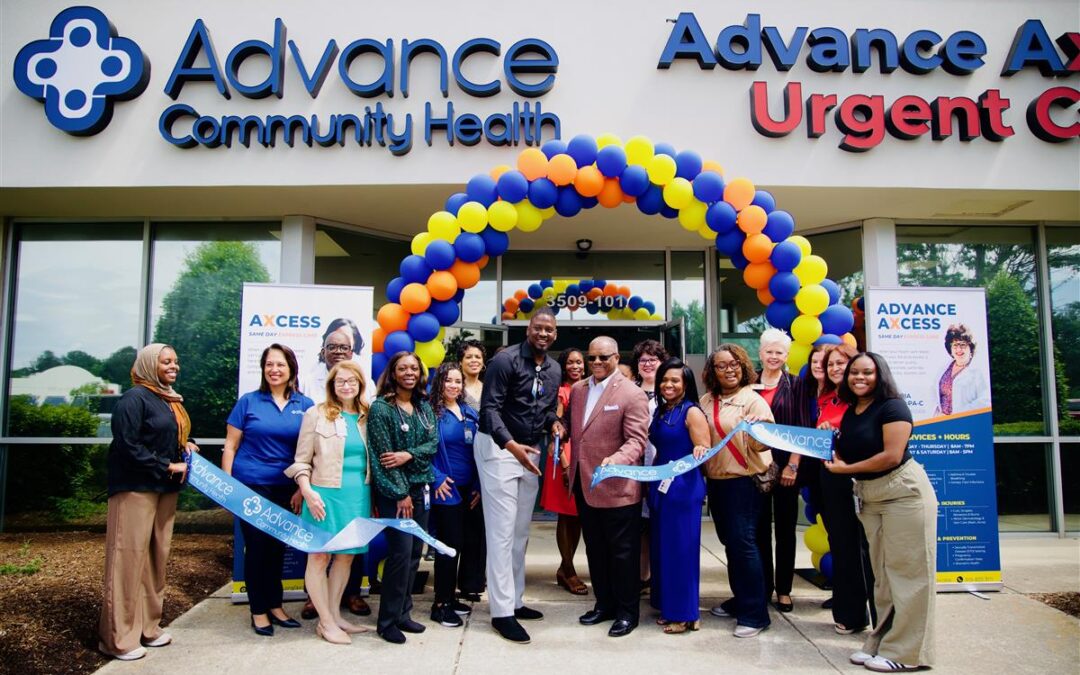We can’t “Make America Healthy Again” by cutting SNAP (Supplemental Nutrition Assistance Program) benefits. This is not a theory, it’s a fact.
On November 13th, Congress reopened the government after the longest shutdown in U.S. history, but as time passes, SNAP debates still linger.
Food insecurity and the lack of fresh fruits and vegetables have long been a public health issue, either through bad policy or deliberate policies. Healthcare organizations like Advance Community Health have a front row seat to the impact of “bad policy”. We know that access to nutritious food directly impacts chronic disease prevention, child development, and overall health outcomes. Cutting it or limiting it can drive up healthcare costs and deeper inequities.
Serving as the CEO of Advance Community Health is one of my biggest joys and greatest responsibilities outside of being a husband and father. It’s the reason I get up in the morning. More than anyone, I know the importance of care, community, and support, and Advance has over 21,000 patients who rely on us for just that.
Not only do they rely on us for health care, but we serve as a direct connection point to other critical services such as transportation and housing. Lately, what keeps our care coordinators busiest of all is connecting patients to food resources. The most recent cuts to SNAP have sent a wave of panic through our organization.
People are going to have to make tough decisions each day about whether they keep their doctor’s appointment or how they will pay for their medical premiums, because they are stressed about where their next meal is going to come from.
At a time when we need to be building up a workforce, people are going to be sicker. People are going to be mentally drained and unable to compete in the workforce, and help make this country what it needs to be.
According to the Center on Budget and Policy Priorities, SNAP helped over 1.4 million North Carolina residents, or 13% of the state population. Of those serviced by SNAP, more than 66% were families with children, 34% included families with members who are older adults or are disabled, and more than 46% were working families.
When we think about programs like Medicaid or SNAP, there’s a tendency to put a particular face on them, a Black or Brown face, someone living in the city, or someone who doesn’t speak English as their first language. But that’s not the truth. Most of America is rural. SNAP recipients come from all backgrounds, white, Black, and Latinx alike. Nationally, White Americans represent roughly 37 percent of SNAP recipients, with African Americans making up 26 percent, and Latinx at 16 percent.
The people being hurt the most by cuts to these programs are often in our deeply rural areas, where access to care is already limited and providers are stretched to the brink. Rural America is a microcosm of all people, and what we’re seeing isn’t just a political issue; it’s a real collision between political views and common sense, between maintaining the status quo and what it takes to keep communities healthy nationwide. When these essential supports are slashed, we’re not just hurting some imagined ‘other’, we’re hurting communities that make up the backbone of our country.
If there was ever a moment where healthcare as a whole needs to come together, it’s now. We don’t have to separate it by cottage industry, whether it’s academic teaching, health systems, private practices, rural practices, community health centers, or free and charitable, I think there needs to be a radical response.
There needs to be a conversation on how we bring some efficiency and some strategy to sustain what we currently have, and that means that we have to check egos at the door, and we have to leverage the best of everyone to sustain safety net care and really good primary care in our communities.
The underpinnings of safety net care is understanding that we put tremendous value and energy into solving the public health ills and making sure that we do things that are impactful across the masses. That’s what safety net care is.
We’re all in this fight together because every piece has another domino effect to it. Until we start viewing programs like SNAP as essential pieces of the healthcare landscape, America will never be healthy again.
Sources: Center on Budget and Policy Priorities. (2025). Snap Factsheet: North Carolina.






